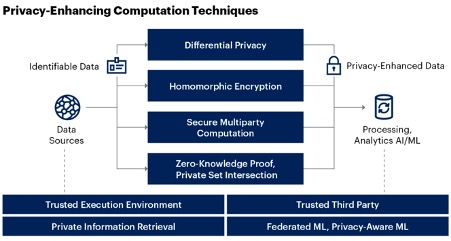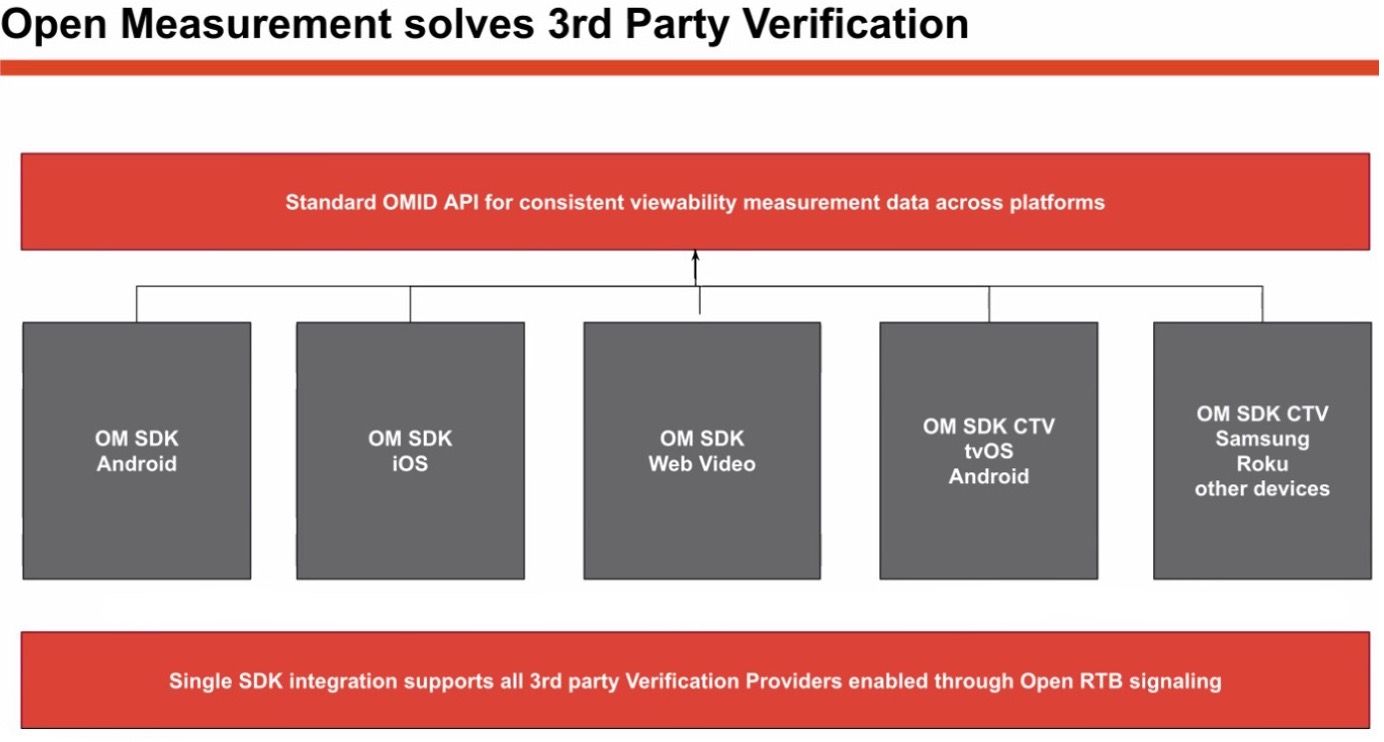As we prepare for another busy year ahead, we've been covering a few key topics - such as the responsible management of consent & privacy signals (click here) and critical updates on third-party cookie deprecation, such as Chrome’s Tracking Protection feature, (click here) and how to prepare.
IAB Tech Lab turn 10 years old in 2024 - and remain absolutely fundamental to the collective future success of our industry from a technical perspective. Their collaborative and open-source approach to providing key standards, solutions and best practices is so important in enabling how the IAB global family meaningfully supports each market.
Just a quick reminder about IAB Tech Lab - which develops, oversees and updates critical global technical standards and solutions - designed to enable and support a healthy and sustainable digital media and advertising industry. Key areas of focus are transparency, fraud, identity, data, consumer privacy, ad experiences & measurement, and programmatic effectiveness.
Over the past few years and under the leadership of CEO, Anthony Katsur, IAB Tech Lab have kicked off each calendar year with a roadmap and list of priorities. In this article we'll review the list and provide a bit more information and guidance in and around each topic.
Topics include:
1. Advanced TV Creative ID Framework Spanning Digital and Linear:
In November 2022 IAB Tech Lab first launched the Advanced TV Roadmap as a long-term initiative working to provide technical standards that can bring universal addressability to all TV environments.
This commitment is one that will take years, not months - and at the heart of the project is ensuring that any ad can be identified and made accessible as part of the complete addressable landscape for both traditional broadcast as well as all emerging IP-enabled TV (CTV, OTT, Addressable Linear, streamed FAST channels) experiences.
In order to enable interoperability between legacy linear and connected television the plans are to look at five key areas.
- Universal Reconciliation: Create the structure for omni-channel sales management through streamlined and standardised reconciliation of TV buying across all CTV, linear and broadcast environments.
- Cross-Environment Auditability: Develop open-source measurability for tracking ad creative across all platforms.
- Data Interoperability: Establish a common technical framework for audience interoperability, universal addressability and cross-environment frequency capping.
- Improved Ad Validation: Further develop Advanced TV anti-fraud capabilities and more accurately account for viewability metrics.
- Frame Accurate Ad Replacement: Establish the foundations for impression-based TV markets, universal ad break management and ad slots signaling.
A key element of this is IAB Tech Lab's intent to establish a comprehensive Creative ID Framework, providing all segments of television delivery a fundamental building block, answering what played where and when whilst helping buyers understand the value of ubiquitous use of a creative ID across all TV environments.
Another interesting technological proposal relates to video watermark technology. This is based upon already developed ATSC 3.0 standards as a sustainable, long-term, glass-based, client-side technology. The video watermark can provide the capability to robustly embed ancillary data in the transmitted pixels of a video signal - and hence could be used for multiple operations, such as viewability verification, measurement and frame-accurate ad replacement for addressable inventory within linear media.
The key technologies to be recommended by the Advanced TV Roadmap are below:

2. Ongoing Fragmentation of Privacy Law:
Australia is currently going through a privacy review and we expect to see draft legislation published sometime in 2024. As a result, discussions related to the collection, management and adherence to consumer consent for digital advertising are becoming more prevalent across the industry here.
The same has been happening, and is happening, across a very wide range of global markets which the IAB supports (e.g. USA, Europe, Brazil & Canada). In order to enable technically consistent compliance across all these jurisdictions IAB Tech Lab developed the Global Privacy Platform (GPP) as a unified global architecture designed to manage the varying consumer privacy preferences required by local level regulations.
The GPP functions as a protocol designed to streamline the transmission of privacy, consent, and consumer choice signals from sites and apps to ad tech providers - thereby enabling advertisers, publishers and technology vendors in the digital advertising industry to adapt to regulatory demands across different markets.
Through 2024 IAB Tech Lab will continue to bring legal and technical professionals together to resolve for the differing regulatory demands of each market, including Australia.
Additionally a system is required to ensure that supply chain participants can consistently demonstrate that they are adhering to and respecting any consumer preferences and consent signals received. This has resulted in the development of IAB Tech Lab’s Accountability Platform, released as a draft technical audit framework - with a 75-day public comment period until 27th February, 2024.
The Accountability Platform is designed to provide consistent technical audit opportunities to support the industry in audit obligations, investigations, and other checks and balances endeavours. Further, it demonstrates who’s involved in data sharing and their conformity to the preferences and restrictions set by users and the digital properties they visit. There are four key stages to the process:

image source: IAB Tech Lab
The platform is designed to support monitoring of any ad-related sharing of user data through the periodic collection of samples. These samples are explicitly designed to not contain any user data other than the preference signals.
To access an explainer of the Accountability Platform simply click here
To learn more about consent signals and the Global Privacy Platform (GPP) simply click here
3. Addressability & Privacy Enhancing Technologies:
Much of the industry is currently researching or actively working on developing innovative privacy-first addressability solutions due to the ongoing deprecation of third-party cookies and other legacy identifiers.
This includes an increased interest in Privacy Enhancing Technologies (PETs) which are at the forefront of this privacy-by-design addressable revolution. These are a category of technologies that enable, enhance and preserve the privacy of data throughout its lifecycle, including when being shared with third-parties.

image source: Gartner
Some examples of PETs are Secure Multi-Party Compute (SMPC), Differential Privacy, and Trusted Execution Environments (TEEs):
- Secure Multi-Party Compute (SMPC) - cryptographic technique that allows multiple parties to jointly compute a function on their private data.
- Differential Privacy - a method for protecting the privacy of individuals within a dataset while still allowing access to any valuable insights from the data. This works by adding a small amount of noise to the data in a controlled manner, so any results of analysis are accurate for the group as a whole, but it is impossible to tell whether any individual data was included in the analysis.
- Trusted Execution Environments (TEEs) - secure areas of central processors or devices that execute code with higher security than the rest of the device, through encrypted memory regions called enclaves. As the TEE is isolated from the rest of the device, it is not affected by infection or compromise of the device.
Through 2024 IAB Tech Lab will continue to work to define guidance regarding relevant advertising use cases and new technical standards for addressing known and unknown audiences, so as to support innovation in data-secure addressability solutions. A PETs Working group has been launched in order to provide the expertise required for enabling ad hoc deployment of PETs between groups of ads ecosystem participants in relation to:
- How the PETs work.
- The use cases the PETs can support and subsequent APIs.
To learn more about Privacy Enhancing Technologies (PETs) simply click here
To learn more about the IAB Tech Lab PETs Working Group simply click here
4. Measurement:
Through 2024, the IAB Tech Lab will continue to work on comprehensive cross-environment measurement strategies as data signal loss complicates understanding consumer behavior and measuring campaign effectiveness.
A lot of this work has focused on viewability via the Open Measurement SDK in the past - but moving forwards IAB Tech Lab’s measurement initiative will evolve to encompass more diverse measurement use cases across multiple media environments. One of the most widely adopted solutions from IAB Tech Lab, the OM SDK gives advertisers flexibility and choice in the verification solutions from their preferred providers by making it easier for publishers to integrate via one SDK and enable ad verification for all verification vendors.

Additionally, web browsers and mobile platforms more frequently offer proprietary solutions for advertising and measurement in their applications. Along with industry-developed addressability solutions such as Data Clean Rooms and ID solutions, these proprietary APIs are a new area for the industry to investigate, test, and develop potential solutions to add to portfolios of addressability.
IAB Tech Lab will work to dive deep into new measurement methodologies for these new addressability mechanisms based on these APIs so as to provide unbiased guidance to the industry.
To review recent IAB Tech Lab ID Solutions Guidance simply click here
To read an explainer about Chrome’s Third-Party Cookie Phaseout & Proposed APIs click here
To read an explainer about IAB Tech Lab's OM SDK for CTV simply click here
5. Buy-side Education and Adoption:
IAB Tech Lab will look to emphasise educational content development, with initiatives to include brand and agency content development and ad operations workshops. These initiatives are intended to raise awareness about standards and specifications in the market, fostering a better understanding among buyers and sellers of the benefits of both adopting and utilising these standards for their business.
Locally, IAB Australia will be doing the similar work to promote IAB Tech Lab standards and solutions through regular articles such as this and our events through 2024. To review the events that we have planned for this year (in Sydney, Melbourne and Brisbane) simply click here.